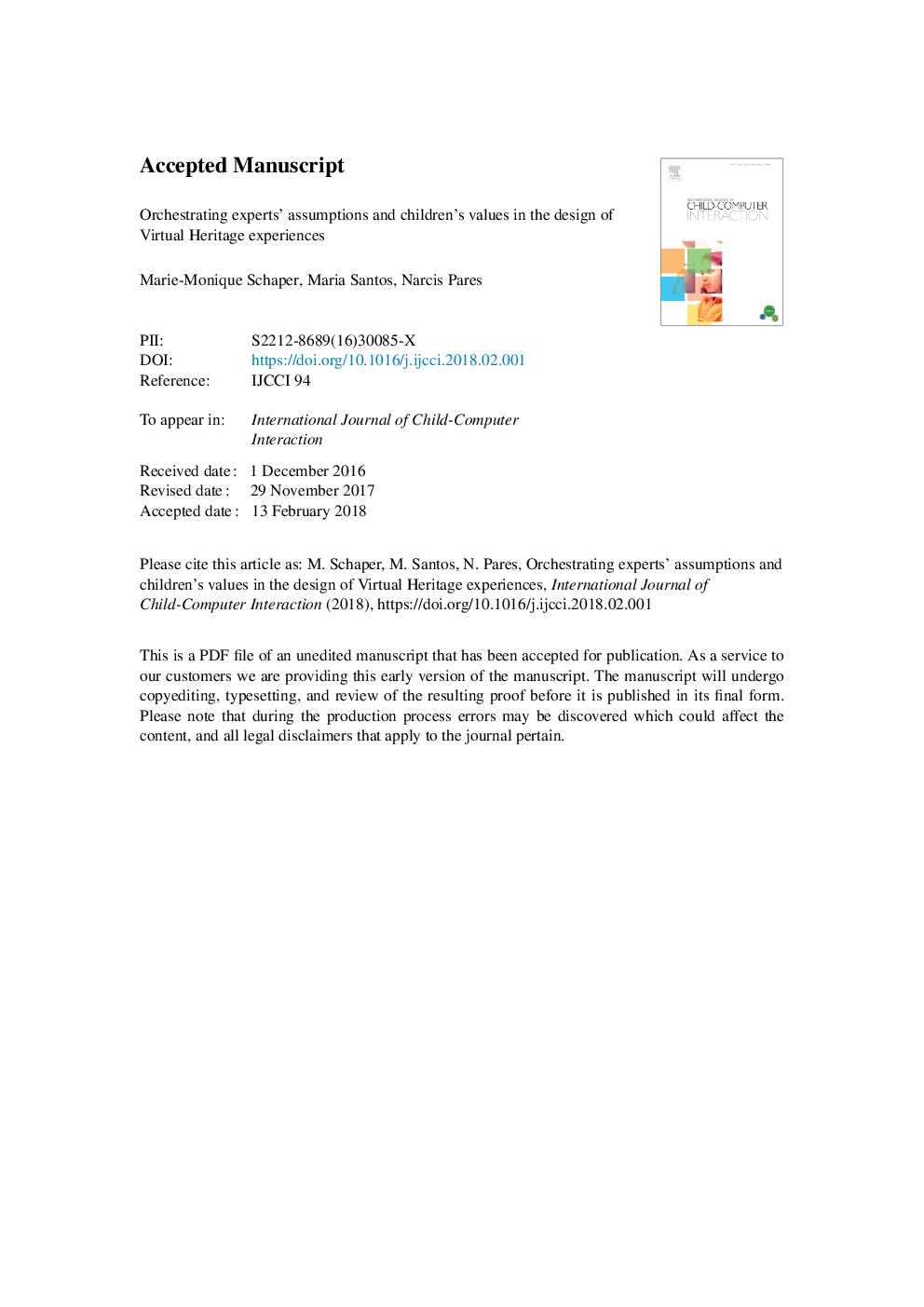| Article ID | Journal | Published Year | Pages | File Type |
|---|---|---|---|---|
| 6795216 | International Journal of Child-Computer Interaction | 2018 | 24 Pages |
Abstract
The roles that children are allowed to play in the co-design of an interactive experience are strongly influenced and determined by the views of designers and other adult stakeholders on childhood, as well as by their expectations of children's skills and cognitive capacities. In this paper, we contrast these assumptions in the design of a Virtual Heritage experience for guided school visits at an archaeological site. The goal of our study was to analyse different viewpoints of adult stakeholders in order to find new strategies that balance power relations between adults and children. The study was carried out in the context of the preliminary design stage of an interactive learning experience for a bomb shelter dating from the Spanish Civil War, known as “Refugi 307”. Our analysis reveals some of the reasons behind the assumptions of adult stakeholders. These outcomes were our starting point for defining strategies that can establish collective values among adult stakeholders and enrich the range of roles of children in a design process.
Related Topics
Physical Sciences and Engineering
Computer Science
Human-Computer Interaction
Authors
Marie-Monique Schaper, Maria Santos, Narcis Pares,
